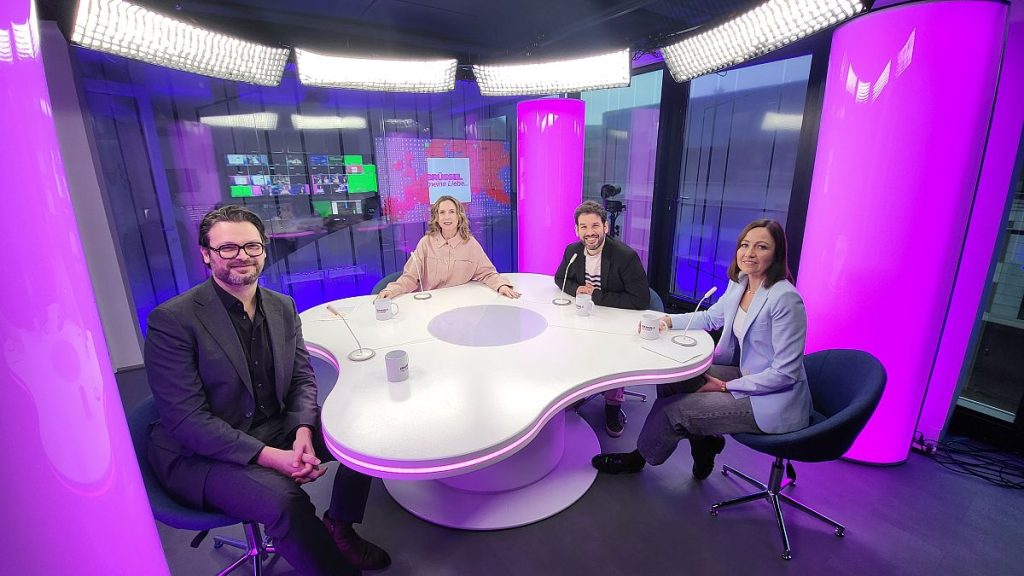The dawn of 2025 brings with it a shift in the European Union’s political landscape, marked by Poland’s assumption of the rotating presidency of the EU Council. This transition, occurring amidst a backdrop of global uncertainties and emerging challenges, has sparked both hope and apprehension regarding the direction of European policy and the future of the Union itself. Poland’s Prime Minister, Donald Tusk, takes the helm at a critical juncture, inheriting a complex set of issues ranging from security concerns and economic stability to the evolving relationship between technology and democracy. The panel of experts convened to discuss these pressing matters offers diverse perspectives on Poland’s leadership, the implications of Elon Musk’s political interventions, and the broader challenges facing Europe in the year ahead. The central question revolves around Poland’s capacity to navigate the intricacies of European politics and effectively steer the Union towards a more secure and stable future.
Dorota Bawolek, Brussels correspondent for Poland’s TVP, expresses confidence in Poland’s ability to provide steady leadership, highlighting the stability of the current Polish government – a coalition of social democrats, liberals, and the center-right – as a key asset in navigating the complex European political landscape. This stability, she argues, stands in stark contrast to the political volatility witnessed in other European nations, positioning Poland as a reliable and steady hand at the wheel of the EU Council. Bawolek’s optimism reflects a belief that Poland’s experience and political makeup offer a unique opportunity to bridge divides and foster consensus within the Union. The Polish government’s stated commitment to strengthening Europe resonates with the current climate of uncertainty and reinforces the notion of a unified front against external threats.
Antonios Nestoras, founder of the think tank EPIC, echoes this sentiment, welcoming Poland’s ascension to the presidency, particularly in light of the preceding Hungarian leadership. He expresses relief at the shift in leadership and endorses Poland’s commitment to bolstering European security, emphasizing the critical role of the EU in providing security for its member states. Nestoras raises a fundamental question about the EU’s purpose: if it cannot guarantee the security of its members, its very existence is called into question. This underscores the importance of Poland’s focus on security and its potential to galvanize the EU’s collective efforts in addressing this crucial concern.
Beyond the immediate implications of the rotating presidency, the panel also delves into the controversial actions of Elon Musk, particularly his vocal support for the far-right Alternative for Germany (AfD) party and his criticism of UK Prime Minister Keir Starmer. These interventions have raised concerns about the influence of tech billionaires in the political sphere and the potential threat they pose to democratic processes. Jack Schickler, a senior reporter at Euronews, characterizes Musk’s actions as “extraordinary,” drawing parallels between Musk and Russian oligarchs and questioning the implications of such powerful figures wielding influence over political discourse. While acknowledging Musk’s entrepreneurial brilliance, Schickler highlights the potential dangers of unchecked power and the need to scrutinize the motives behind such interventions.
Nestoras, while acknowledging Musk’s intellectual prowess, cautions against his involvement in politics, deeming his support for the AfD naive and potentially detrimental to Germany’s future. He argues that Musk’s embrace of divisive political ideologies undermines the spirit of European unity and cooperation, emphasizing that no single European nation can thrive in isolation. Nestoras underscores the interconnectedness of European nations and the importance of collaborative solutions, implicitly criticizing Musk’s seemingly simplistic approach to complex political issues.
The discussion surrounding the EU presidency and Musk’s political interventions highlights a broader tension between national interests and the pursuit of a unified European identity. Poland’s assumption of the presidency represents an opportunity to strengthen the bonds within the EU, while Musk’s actions serve as a reminder of the potential disruptions posed by powerful individuals operating outside traditional political structures. The panel’s diverse perspectives underscore the complex challenges facing Europe in 2025 and beyond, raising critical questions about the future of the Union and the role of technology in shaping the political landscape. The underlying theme revolves around the delicate balance between national sovereignty, European unity, and the influence of powerful non-state actors in an increasingly interconnected world. The panelists’ views, while differing in their assessment of specific individuals and policies, converge on the fundamental importance of a strong and unified Europe capable of navigating the complex challenges of the 21st century.














